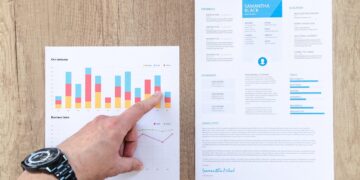Mastering the Unexpected: Strategies for Creating a Foolproof Budget for Sudden Expenses
In a world where uncertainty is the only certainty, mastering personal finance requires more than just saving money—it demands a proactive approach to budgeting for sudden expenses. From car repairs to medical emergencies, life’s unpredictability can wreak havoc on your financial stability if you’re not adequately prepared. This comprehensive guide delves into strategies for creating a foolproof budget that encompasses unexpected costs, guarantees financial security, and maintains peace of mind.
Understanding the Importance of an Emergency Fund
The cornerstone of any robust financial plan is an emergency fund. An emergency fund is essentially a financial safety net designed to cover unforeseen expenses without disrupting your regular budget or pushing you into debt. Financial advisors typically recommend that you save enough to cover three to six months’ worth of living expenses. This fund should be easily accessible, like in a high-yield savings account, which offers better returns than a regular savings account yet still provides the liquidity you require in emergencies.
How Much Should You Save?
While the general recommendation is three to six months’ worth of expenses, the exact amount can vary based on your job security, number of income sources, and personal comfort level. For instance, freelancers or individuals in volatile job markets might benefit from a larger safety net, whereas dual-income households might not need as much set aside.
Identifying and Budgeting for Irregular Expenses
Sudden expenses aren’t always emergencies, but can rather be irregular or unexpected costs that occur outside of your normal spending routine. These could include quarterly insurance premiums, annual subscriptions, or less frequent home maintenance tasks. To manage these, include a specific line item in your monthly budget for irregular expenses:
- Review past bank statements to identify annual or semi-annual expenses you might forget.
- Average these costs on a monthly basis to know how much you need to save.
- Set aside this amount in a dedicated savings account each month.
Employing Tools and Technology to Manage Unforeseen Expenses
Leveraging the right tools can significantly enhance your ability to manage finances and prepare for unexpected expenses. Budgeting apps and financial planning software can help you track your spending, set savings goals, and alert you when you’re approaching your budget limit. Features like automatic transfers to savings accounts can also streamline the process, ensuring you’re consistently setting aside money without having to think about it.
Recommended Budgeting Apps
When selecting a budgeting app, look for features like expense tracking, customizable budgets, and predictive analytics that can help forecast future spending. Apps such as Mint, You Need a Budget (YNAB), and PocketGuard offer robust functionalities tailored to various budgeting needs.
Reducing the Impact of Sudden Expenses
While setting aside money is crucial, reducing the risk of sudden expenses can also help keep your finances in check:
- Maintenance: Regularly maintaining your home, car, and major appliances can help prevent costly repairs.
- Insurance: Adequate insurance coverage can safeguard against massive expenses due to health issues, natural disasters, or accidents.
- Warranties and Guarantees: Taking advantage of product warranties and guarantees can save costs on potential replacements or repairs.
How to Adjust Your Budget After a Sudden Expense
If a sudden expense does occur and utilizes some or all of your emergency fund, it’s essential to adjust your budget to replenish it. You might need to temporarily cut discretionary spending, such as dining out or entertainment, or find additional sources of income to restore your financial buffer as quickly as possible.
Building Resilience Over Time
Financial resilience isn’t built overnight. It’s the result of continuous and conscious efforts to save, plan, and manage your money wisely. Every step you take towards creating a foolproof budget for sudden expenses strengthens your financial health and prepares you for whatever uncertainties life may throw your way.
Conclusion
Mastering the unexpected through a foolproof budget isn’t just about preparing for the worst; it’s about ensuring a stable, worry-free financial future. By building a robust emergency fund, planning for irregular expenses, utilizing financial tools, and being proactive about potential costs, you can protect yourself from financial upheaval and maintain control over your financial destiny. Start today, and turn the unexpected into the manageable.
Committing to these strategies not only secures your financial well-being but also enables you to navigate life’s challenges with confidence and ease.



























































